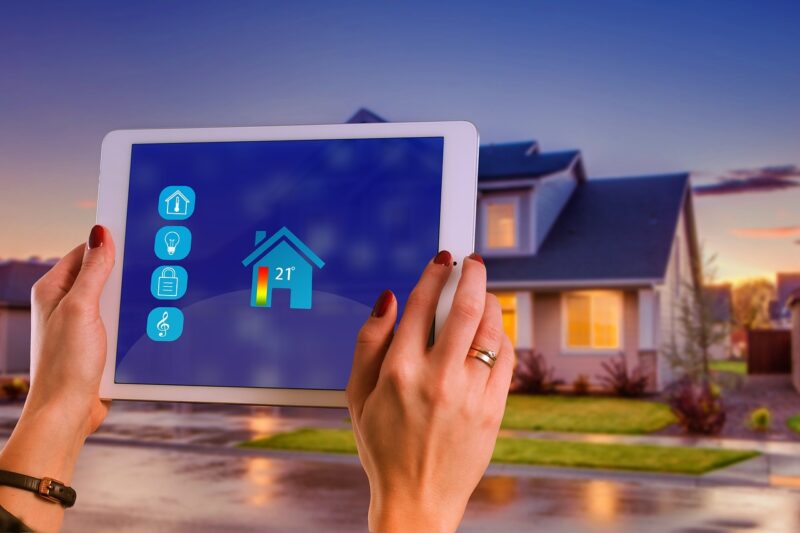Exploring the Fascinating World of Smart Devices and Their Impact on Our Lives
November 18, 2024

In recent years, smart devices have become an integral part of our daily lives, fundamentally altering how we interact with our environments, each other, and even ourselves. From home automation systems to wearable gadgets, smart devices encompass a diverse range of technology that not only makes our lives easier but also introduces new dynamics in communication and efficiency. In this article, we will explore the fascinating world of smart devices spanning various categories such as home automation, healthcare, personal assistance, and beyond, while also examining their social and psychological impacts.
1. What Are Smart Devices?
Smart devices are electronic gadgets that connect to the Internet or communicate with other devices to collect and exchange data. They employ various technologies, such as Wi-Fi, Bluetooth, and cellular networks, to interact seamlessly with users and enhance their functionalities. Examples include:
- Smartphones: Multi-functional devices that combine communication, computing, and entertainment in one package.
- Smart Home Devices: Appliances like smart thermostats, lighting systems, and security cameras that can be controlled remotely.
- Wearable Technology: Devices like smartwatches and fitness trackers that monitor health metrics and activities.
- Smart Assistants: Voice-controlled devices like Amazon Echo and Google Home that provide information and perform tasks via voice commands.
As smart devices proliferate, they have triggered a significant transformation in how we perceive convenience, efficiency, and even our capacity to connect with one another.
2. The Rise of Smart Home Devices
Smart home devices have emerged as a staple of modern living. They enable homeowners to control various facets of their home environment through mobile applications or voice commands. Some notable innovations include:
– **Smart Thermostats:** These devices learn your temperature preferences and adjust heating or cooling automatically to increase comfort and save energy.
– **Smart Security Systems:** Featuring cameras, doorbells, and sensors, these systems provide real-time alerts for unusual activity and enable you to monitor your home remotely.
– **Smart Lighting:** Users can adjust the brightness and colors of their lights, set schedules, and control lights via their smartphones or voice commands.
These devices not only enhance convenience but also promote energy efficiency, helping users reduce their environmental footprint.
3. The Impact of Wearable Technologies
Wearable devices are shaping the future of health and fitness. They allow users to monitor critical health metrics such as heart rates, activity levels, and sleep patterns. For instance:
– **Health Monitoring:** Devices like Fitbit and Apple Watch provide real-time data, enabling users to make informed health decisions.
– **Fitness Motivation:** By tracking performance and setting achievable goals, wearables create accountability and encourage active lifestyles.
The healthcare sector has also begun leveraging wearables to track patients’ health post-surgery or in chronic disease management, enhancing the doctor-patient relationship.
4. Smart Devices in Healthcare
The healthcare industry is undergoing a digital revolution, with smart devices playing a pivotal role in patient care. These devices can:
– **Remote Monitoring:** Allow physicians to track vital signs and outcomes without requiring patients to visit a clinic.
– **Telemedicine:** Facilitate remote doctor visits, making healthcare more accessible, especially in underserved areas.
– **Medication Management:** Devices that remind patients to take their medications, thereby improving adherence and overall health outcomes.
The integration of smart devices in healthcare emphasizes the importance of data-driven decisions in enhancing quality of care.
5. The Role of Smart Assistants
Smart assistants have revolutionized personal interactions with technology. Devices like Amazon Alexa and Google Assistant are integrated into various smart devices, facilitating:
– **Voice Command Accessibility:** Users can perform tasks hands-free, like playing music, controlling smart home devices, and finding information online simply by using their voice.
– **Task Automation:** Smart assistants can manage schedules, set reminders, and even facilitate communication with other smart home systems.
This technology profoundly reshapes daily routines and habits, making life feel more streamlined and organized.
6. Social Implications of Smart Devices
While smart devices enhance convenience, they may also create societal challenges. For instance:
– **Privacy Concerns:** Smart devices often collect data on user behavior, raising questions about data security and privacy.
– **Digital Dependency:** Increased reliance on technology can lead to decreased face-to-face interactions, fostering a sense of isolation.
– **Equity Issues:** Access to smart technology is not universal, potentially widening the gap between those who can afford these conveniences and those who cannot.
Thus, as we embrace the benefits of smart devices, it is imperative to address these associated risks thoughtfully.
7. The Future of Smart Devices
Looking ahead, the world of smart devices promises even more innovative advancements. Emerging trends include:
– **AI Integration:** Improved artificial intelligence capabilities will enable smart devices to learn user preferences more effectively, predicting and responding to needs intuitively.
– **Interoperability:** Future smart devices will likely focus on seamless communication across different platforms, enhancing user experience without compatibility limitations.
– **Sustainability:** As environmental concerns mount, smart devices will increasingly prioritize energy efficiency and eco-friendly features.
The ongoing evolution of smart technology will continue to influence our lifestyles, making it essential for users to stay informed and adapt accordingly.
Conclusion
Smart devices are reshaping our world, introducing efficiencies, conveniences, and innovations that were once the realm of science fiction. However, as we embrace these technologies, it is crucial to remain vigilant about their implications on privacy, society, and human interaction. By understanding both the positives and potential challenges of smart devices, we can navigate this intricate landscape effectively and responsibly, ensuring they serve to enhance our lives in meaningful ways.








